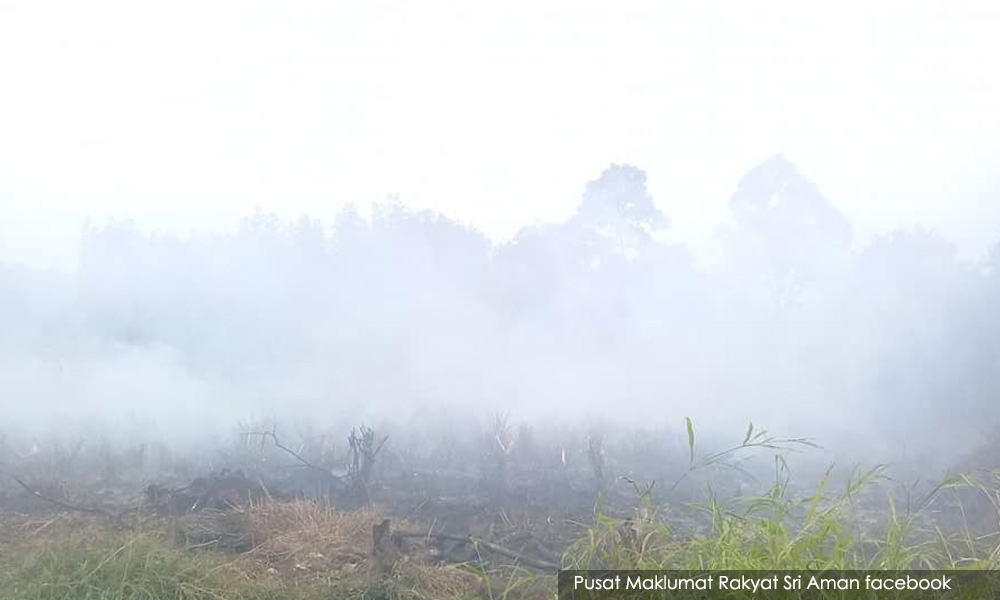LETTER | The haze conundrum has now joined national unity and social harmony on the list of current issues causing major concern to Malaysians. The haze is demanding more urgent attention than national unity because of its high visibility (or poor visibility as it were) in terms of immediate danger to society.
Be that as it may, haze and harmony are interconnected, if the latter is looked at from its wider perspective or the requirements to achieve it.
Let us examine the requirements for harmony firstly from the PESTELS framework:
- Political: good governance and responsible government
- Economic: gainful employment, equitable distribution of wealth (robust economy)
- Social: national integration, cohesion and unity
- Technological: meeting basic needs and improving the quality of life
- Environmental: sustainability awareness, sustainable practices, healthy and sustainable environment
- Legal: justice, rule of law
- Spiritual: freedom of worship, interfaith tolerance
Secondly, from the perspective of Maslow Primary Human Needs:
- Physiological Needs: basic needs of food, water, clothing, shelter, clean and healthy environment, etc
- Safety Needs: safe feeling in a friendly environment
- Belonging Needs: being an accepted member of a group
- Self-Esteem Needs: a feeling of self-worth, confidence in own ability
- Self-Actualisation Needs: fulfilment of potential
It is clear from the above that the socio-cultural-spiritual (SCS) factors (eg integration, cohesion and unity, acceptance, religious tolerance) are important in harmony. It is this group of factors that is the focus of the Dialog Rakyat for national cohesion and unity in promoting 'Harmoni-Mesra' Malaysian communities, as has been written before.
A safe, clean and healthy environment is featured in both of the above frameworks as well. Air, land and water pollution of any kind are a threat to harmony. The incidence of water and air pollution emanating from the Kim Kim River in Johor and the land and air pollution from bauxite mining in Pahang causing the disruption of citizens' lives are recent examples.
The current haze situation is already causing disruption to peoples' lives in many parts of Malaysia. The prolonged serious hazy condition can be a threat to social harmony, which may have a political fallout, as it can be interpreted, rightly or otherwise, as a dereliction of good governance and responsible government. Already there are reports of demonstrations and calls for resignation.

The passing of a Malaysian law to combat haze is not going to be effective as this is a transboundary issue. It actually calls for a lot of diplomacy, especially science diplomacy.
There are three recognised aspects of science diplomacy, namely (i) science in diplomacy: the role of science in various diplomatic endeavours, such as climate change, nuclear proliferation treaties, biodiversity; (ii) diplomacy in science: building international relationships for robust collaboration such as scientific networks for shared expertise and infrastructure; and (iii) science in diplomacy: scientific enterprises as a doorway to relationship between nations with shared goals and values.
The haze issue calls for science diplomacy covering all the three aspects above. The question is whether Malaysia has the capacity for science diplomacy and where does that competency reside; in Wisma Putra or the Ministry of Energy, Science, Technology, Environment and Climate Change?
Technology-centric transboundary issues are going to increase in the near future as the need to intensify the implementation of the United Nations Sustainable Development Goals, with international partnership and cooperation to develop and apply technologies and social organisations among its 17 goals. Malaysia must enhance its science diplomacy capacity and competency.
The above is the role of good governance and a responsible government. However, as in dealing with national unity and social harmony, it is, as emphasised by our prime minister, a "collective responsibility", so dealing with the haze issue must also be a collective responsibility of the government and all other stakeholders.
There must be strenuous efforts of diplomacy leading to cooperation at the corporate level among relevant companies operating in the affected territories; likewise among the scientific communities and civil society groups. One might suggest using as the operational approach, the ACCA + E framework: raising Awareness, facilitating Comprehension, encouraging Commitment, urging Action; and mandating Evaluation, of the effectiveness of the joint action. Time now for concerted action and effective practices at all levels to banish potential disrupters of social harmony.
OMAR ABDUL RAHMAN is Senior Fellow, Academy of Sciences Malaysia, and chairperson of the Dialog Rakyat Organising Committee.

